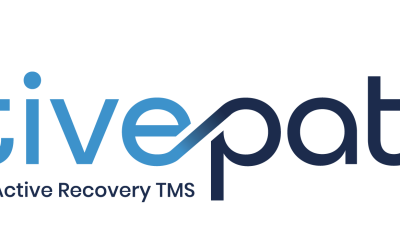Transcranial magnetic stimulation (TMS) is a viable option for individuals struggling with depression, but what does TMS therapy feel like? That’s a common and fair question. After all, depression itself causes pain on many levels as sufferers navigate daily life. It is only natural, and in fact wise, to seek out the potential side effects of any option to ensure a treatment course can be tolerated and completed.
Does TMS therapy hurt?
Everyone has a unique tolerance for pain and discomfort. Fortunately, for most individuals, TMS therapy is bearable. The first TMS treatment session is called a mapping session, in which precise measurements are taken to ensure proper positioning of the device and to calibrate the electromagnetic pulses that will be used throughout the treatment course.
Once instruments are calibrated, TMS treatment can begin. Patients feel a tapping sensation on their scalp, accompanied by a clicking noise, as magnetic stimulation targets specific areas of the brain. While the sensation can feel odd, many patients find that they adjust to it quickly. Also, the discomfort from the sound is minimized with the use of earplugs; it’s important to note that the risk of permanent hearing loss due to the sound is extremely low.
How can discomfort be minimized?
The most commonly reported side effects of TMS are fairly mild and of short duration. For instance, patients may experience discomfort at or near the treatment site, a mild headache or brief lightheadedness. Additionally, some patients report contracting or tingling of the scalp, jaw or facial muscles. But there are ways to reduce these side effects. Treatment providers may adjust stimulation or recommend over-the-counter medications that can be taken prior to treatment.
Providers remain with patients throughout each treatment session and monitor a patient’s comfort level with the procedure. If you, in the midst of TMS therapy, feel like the sensation is too painful or uncomfortable, the provider can stop the procedure at any time.
At Active Path, a medical clinic with three locations in the Portland metro area, only about 5% of patients discontinue the therapy due to the physical discomfort. Compared to antidepressant medication, which can have a host of unpleasant side effects of their own, this rate is relatively low.
Get in touch today to learn if TMS is right for you
Everyone has a unique response to medical procedures, and TMS treatment is no different. Does TMS therapy hurt, or are you hurting your chances of discovering a potentially life-changing treatment by letting fear get in the way? Call us today at 503-389-3724 to schedule a FREE phone consultation and find out more about this promising treatment for depression. It could be the right solution for you.





